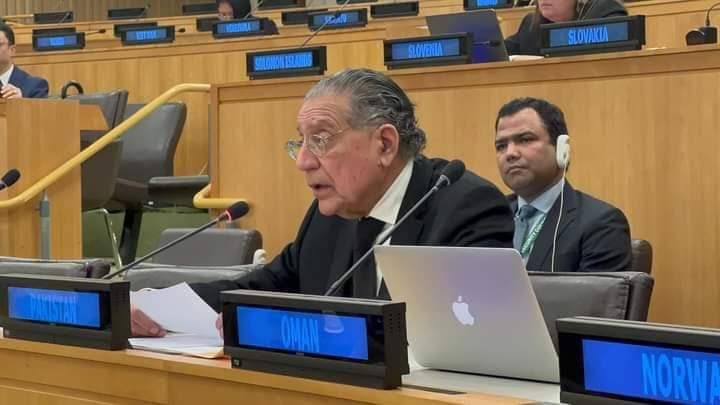
New York : Pakistan has called for rectifying historical injustices by enhancing the representation of Africa within the UN Security Council as part of the reform process to make the 15-member body more effective, inclusive and accountable to combat the growing challenges.
“We acknowledge the historic injustice against Africa – its occupation, oppression and exploitation – and in the structure of the Security Council of the other international institutions,” Ambassador Munir Akram, permanent representative of Pakistan to the UN, told the Council.
The Pakistani envoy was speaking at a high-level debate on addressing the historical injustice and enhancing Africa’s effective representation on the Security Council, convened by Sierra Leone, the Council President for the month of August.
The Security Council is currently composed of five permanent members — Britain, China, France, Russia and the United States — and 10 non-permanent members elected to serve for two years.
Pakistan, he said, agrees that Africa’s demand, set out in the “Ezulwini Consensus” for equitable representation of the region of Africa, stressing that it is critically different from the demand of four States — India, Brazil, Germany and Japan — who are campaigning for permanent membership of the Security Council for “themselves”.
“The demands of Africa for regional seats are designed to rectify injustice not to exacerbate injustice,” Ambassador Akram said, noting that Council’s structure reflects the 1945 power realities.
The Pakistani envoy proposed the creation of “special regional seats” to enhance equitable geographical representation, suggesting that these seats could be rotated among member states within the region or even represented by regional organizations like the African Union, the European Union, the Arab League, and the OIC.
At the same time, he reiterated Pakistan’s stand against adding more veto-wielding permanent members, pointing out that in recent months the Security Council’s frequent inability to take effective collective action, especially in ending the Israeli war in Gaza.
“More vetoes will multiply the prospects of paralysis in the Council. It is for this reason that Pakistan has opposed the addition of new permanent members on the Security Council.”
The Pakistani envoy said the African position that either the veto power of the existing 5 permanent members should be abolished and, if not, the African “permanent” seats should be given the same veto rights was “understandable”
But, he said, the question is whether the 5 permanent members will be willing to give up their veto rights and, if not, whether the veto power can be provided to the designated regional seats, as demanded by Africa.